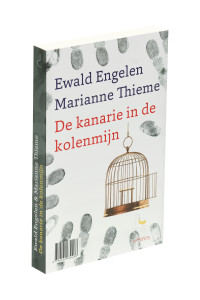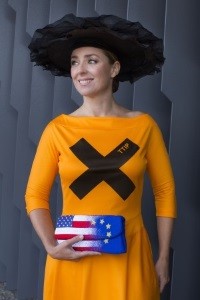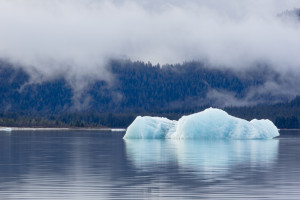Worldlog 18 Nisan 2016
10 Nisan Pazar günü partimizin 22. Kongresini gerçekleştirdik. Bu ilham verici güne 400’den fazla üyemiz katıldı. Her kongrede olduğu gibi bu kongrede de yine özellikle çeşitli kökenlerden gelen insanların partimizin ideallerini paylaşmalarını görmek çok güzeldi. Yıllık faaliyet ve finansal raporlar gibi her zamanki unsurlara ek olarak coğrafya profesörü Ewald Engelen bankacılık krizi konusundaki görüşlerini de bizlerle paylaştı. İyice çürümüş finans sistemi ile at eti dolandırıcılığı gibi birçok gıda skandalları ile düzenlenmiş gıda sistemi karşılaştırıldı. Ayrıca müzmin bir etoburun sonunda nasıl vejetaryen olduğunu anlattı. Ewald ile birlikte “De Kanarie in de Kolenmijn (Kömür Madenindeki Kanaryalar)” adlı yeni kitabını yazdık.

Kömür Madenindeki Kanaryalar kitabımızda ekonomi ve ekoloji üzerine görüşlerimizi birleştirdik. Kitabimiz Hollanda’da bu hafta çıkıyor. Uluslararası okuyucularımız için e-kitap şeklinde İngilizce sürümü yayınlayacak. İngilizce yayının çıkması Mayıs ayı başlarında bekleniyor, bu yüzden sizi gelişmelerden haberdar edeceğim!
Son Wordlog’larımda Hollandalıların AB ve Ukrayna arasındaki serbest ticaret anlaşmasına karşı olup olmadıklarını belirtmeleri için 6 Nisan’da Hollanda’da düzenlenen referandumu anlattım. Partimiz ve ben bu anlaşmaya karşı bir kampanya yürüttük ve insanların çoğunluğunun da karşı oy vermelerine sevindim. Bu anlaşmayı onaylayan hükümetin, referandumdan çıkan sonuçları göz ardı etmemesi gerektiğine inanıyoruz. Geçen haftaki Meclis konuşmamda halkın hayır cevabının tam anlamıyla hayır anlamına geldiğini ve bu yüzden bu anlaşmanın onaylanmaması gerektiğini söyledim.
Daha önce biz zaten TTIP konusunda da referandum organize etmek için hükümete çağırıda bulunduk. Bu çağrımız reddedildi. Ukrayna ile serbest ticaret anlaşması referandumunun sonucu seçmenlerin çoğunluğunun serbest ticaret anlaşmalarına kritik yaklaştığını göstermektedir. Bu nedenle tekrar TTIP anlaşması üzerine bir referandum için önerge verdim. Bu önerim 25 Nisan haftasında oylanacak.

“Eğer buzullar erirse para neye yarar?” Bu geçen hafta Arktik bölgesi üzerine düzenlenen panelde yaptığım konuşmamın başlığı oldu. Hükümetin Kuzey Kutbu’nun korunması için elinden gelen her şeyi yapmasını istiyoruz. Hükümetin Güney Kutbu için optimum koruma için mücadele ettiğini görüyoruz, ancak Kuzey Kutbu için ekonomik kazançların doğa ve çevre duyarlılığından daha önce geldiği görünüyor.
Arktik bölgesinin petrol ve doğalgaz çıkarımına bir son verilmesi için 2014 yılında sunduğum önerge kabul edilse bile, hükümetin bu bölgede ekonomik fırsatlar geliştirmeye odaklandığı görünüyor. Hükümet şimdi Arktik bölgesinde aktif petrol ve gaz sondajı yapan Hollandalı şirketlerin çıkarlarını bile temsil etmek istiyor.

Hükümet güzel, tertemiz ve anlamlı olan her şeyi ancak toprağında para olduğu surece korumak istiyor. Hükümet Arktik bölgesinin korunması ve tüm gezegende daha fazla ısınma ve kirlilik için öncelik koyması gerekir. Bundan daha ağır basan başka bir neden olamaz.
Bu seferlikte bu kadar. Görüşmek dileğiyle!
Sevgiler,
Marianne
On Sunday the 10th of April, we celebrated our Party´s already 22th congress. More than 400 members were present on this inspiring day. Every congress it is remarkable to see people of so many different backgrounds sharing our party’s ideals. In addition to the customary items such as an annual report and annual financial accounts, Professor of Financial Geography Ewald Engelen gave a guest lecture on his views of the banking crisis. He compared the thoroughly rotten financial system to the way our food supply, with its many food scandals including the horse meat fraud, is organised. He also talked about how he had shifted from being a confirmed meat-eater to being a vegetarian. Together, Ewald and I have written our new book De Kanarie in de Kolenmijn (The Canary in the Coal-mine).

In De Kanarie in de Kolenmijn, our visions on economics and ecology meet. As of this week, our book will be sold in the Netherlands. An English version in the form of an e-book will also be published specially for our international readers. This e-book is expected to come out in the beginning of May, so I will keep you informed!
In my last Worldlogs, I have written about the referendum that was held in the Netherlands on 6 April. With this referendum, the Dutch people were able to indicate whether they were in favour of or against the trade agreement between the EU and Ukraine. Together with our party members, I have campaigned strongly against this agreement and I am therefore glad that a majority of the Dutch citizens has also voted against. I think that our government, which is in favour of the treaty, may definitely not ignore the result of this vote. Last week, during a debate in the Lower House, I have indicated once again that a no vote by the Dutch people should literally mean no, and the treaty should therefore not be ratified.
Earlier I have urged our government to hold a referendum on TTIP, but my request was denied. The result of the referendum on the EU/Ukraine treaty shows us that a majority of our voters are critical of free trade agreements. That is why I have once again tabled a motion for a referendum on the desirability of TTIP. It will be put to the vote during the week of 25 April.

“What good will money do you when the icecaps are melting?” That was the title of my contribution to the debate on the Arctic Region last week. We want to see the government fully commit itself to the protection of the North Pole. The Dutch government is fighting for optimum protection of the South Pole, but when it comes to the North Pole, economic gain seems to be put above the fragile wildlife and environment.
After all, despite the fact that the Lower House carried my motion of 2014 on safeguarding the Arctic Region against oil and gas extraction, the government still seems to be focusing on developing economic opportunities in the Arctic. The government is even planning on taking an active role in looking after the interests of Dutch companies that will make money from oil and gas drilling, which has now become possible due to the warming of the North Pole.

The government is willing to protect all that is beautiful, unspoiled and meaningful, expect when there is money in the ground. The government should make the protection of the Arctic Region and the entire planet against further warming and pollution its priority. No other interest can be of more importance.
That’s it for now, until next week!
Kind regards,
Marianne